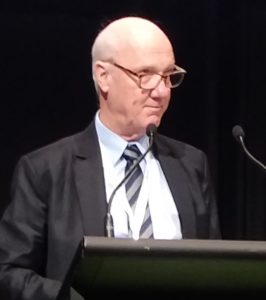Six Papua New Guinean companies discuss the benefits of superannuation contributions and share with Business Advantage PNG why it can help companies reduce attendance problems and increase loyalty.
Superannuation is an important way to reinforce the relationship with staff, improve attendance rates and ensure employees are well looked after when they leave the company.
Gemma Sinaki, the Lae Administration Officer for Global Internet, says that employees like to turn up to work every day because of the contributions to their super. ‘If they don’t [show up to work], then they have less savings and make less of a contribution [to their retirement savings].’
She believes the main reason for the low level of savings in PNG is the wantok system. ‘We are always looking after our extended family, not just of our immediate family. So employees definitely appreciate savings being put aside for them.’
‘It is a significant thing. We are thinking about the life of the staff when they leave employment.’
Superannuation also given employees more financial options, including help to buy a home.
Hari Rabura, General Manager of Human Resources for the Bank South Pacific Group, says: ‘During work, superannuation may also provide an avenue for staff to use their savings as equity to purchase or build homes.’
‘Superannuation is very important; it provides guaranteed life savings for staff when they retire after their working life.
Economic security in retirement
Peter Graham, Managing Director of Ok Tedi Mining Ltd, believes superannuation helps build trust and respect with employees and gives them some financial security after they finish working.
‘Employees who have worked hard during their time with Ok Tedi deserve to reap the benefits of their labour long after their employment with us has finished.’
Graham says super is essential because it gives employees the opportunity to support a ‘dignified retirement’.
And Magi Kini, Human Resources Manager, Internal Services and Operations for Telikom PNG, agrees—superannuation offers security.
‘It is a significant thing. We are thinking about the life of the staff when they leave employment. It [superannuation savings] will look after them when they retire.’
Kini, like Rabura, attributes the low level of saving to ‘the culture’ in Papua New Guinea.
‘They look after their extended family. So super is important because those contributions are untouchable.
‘That is what the law stipulates. The only time that they will access to it is when they leave employment.’
Financial literacy
John Rusiat, Accountant with the East New Britain Province Market Authority (ENBPA) in Kokopo, says the authority increased employee contributions from six per cent to 10 per cent after consultations with employees. He says all of them agreed to the increase.
‘This is important because superannuation is a long term investment for each employee of the organisation, so every dollar they save can make a significant difference.
‘Investing extra cash is generally a good idea if you’re younger—you may want to consider it an investment strategy that will allow you to retire early if you want to. If you’re closer to retirement and in a stable job, topping up super may be a better option.’
Employees in PNG often find it hard to save, according to a spokesperson for C-Wise, a consulting company. ‘Each time they are paid they spend their wages without thinking or saving.’
She says superannuation is the only way employees can accumulate capital. ‘The staff do appreciate the fact they we are able to assist them with their savings. If they were to leave it to themselves they wouldn’t have that opportunity.’











Speak Your Mind